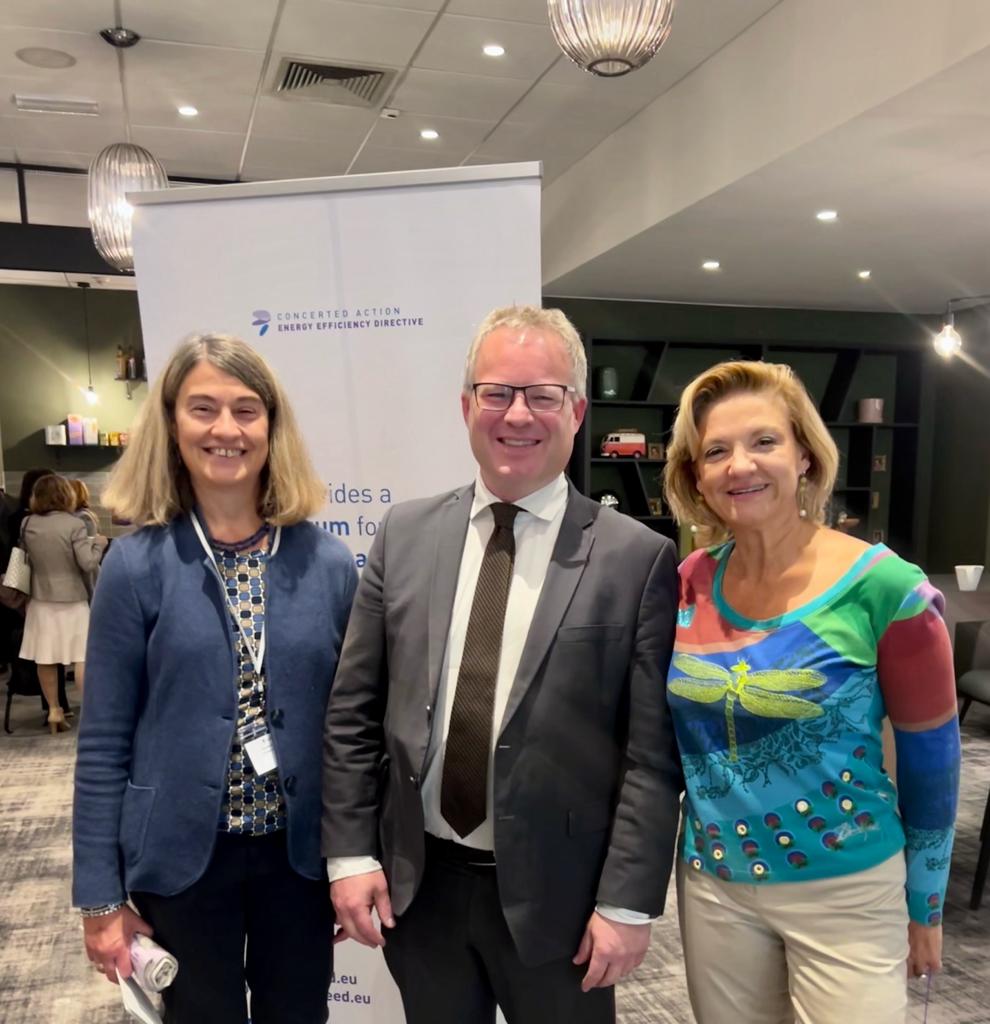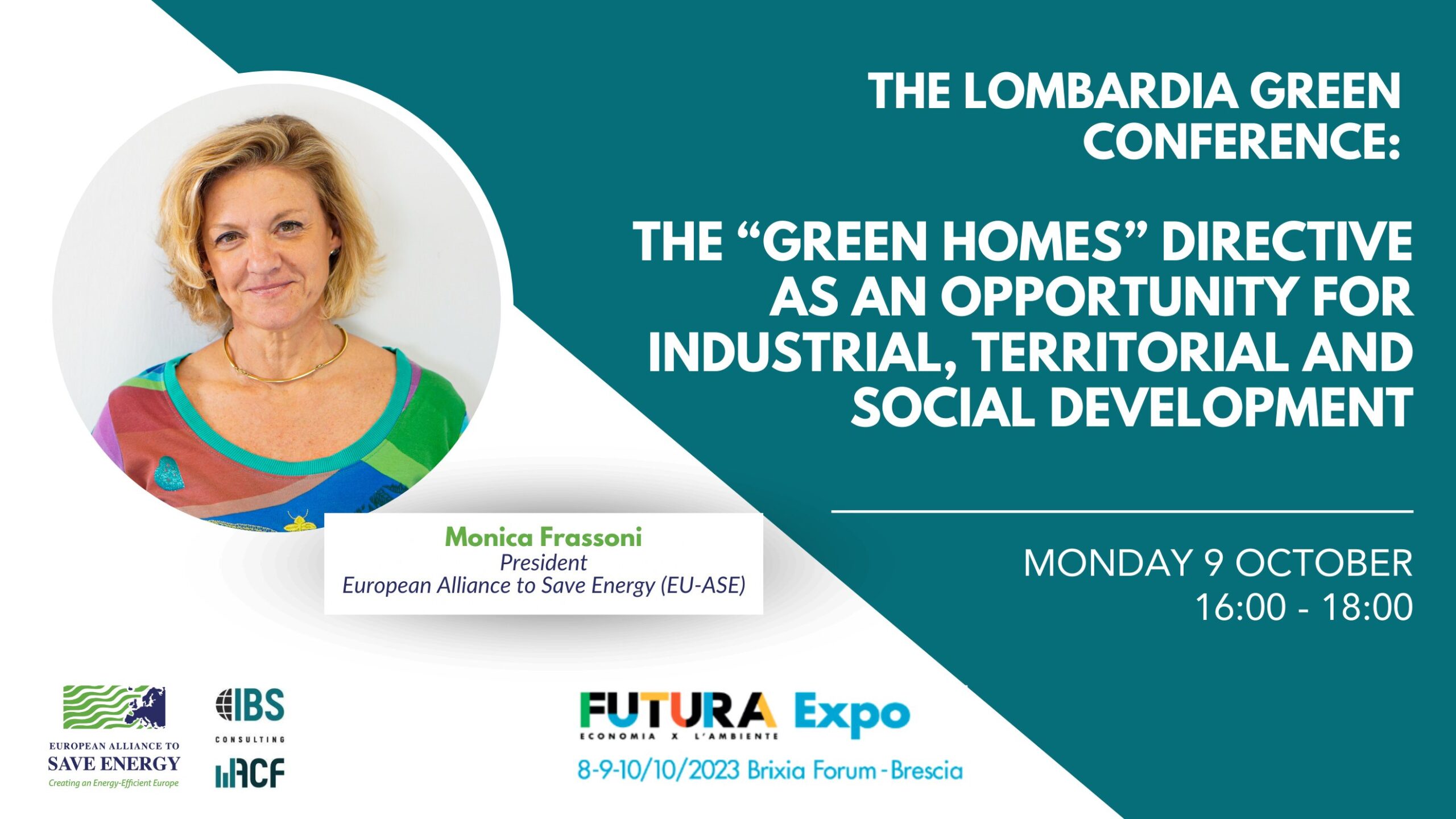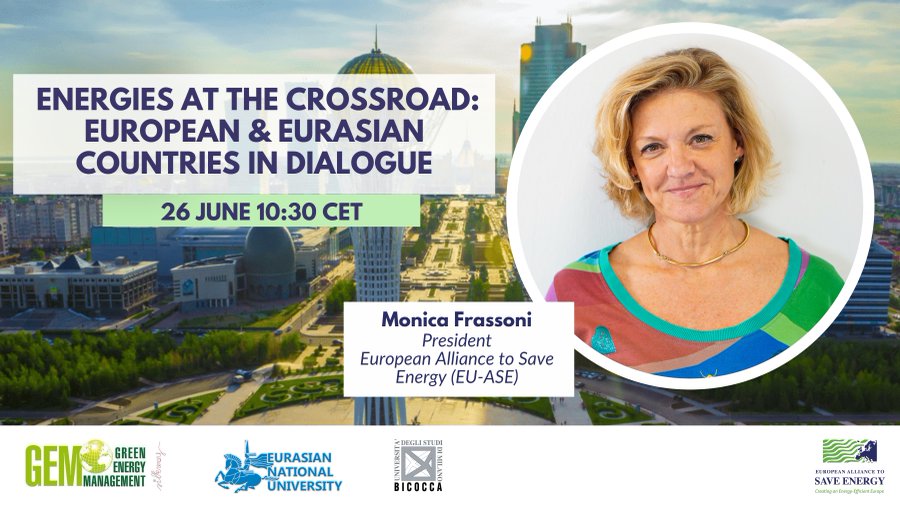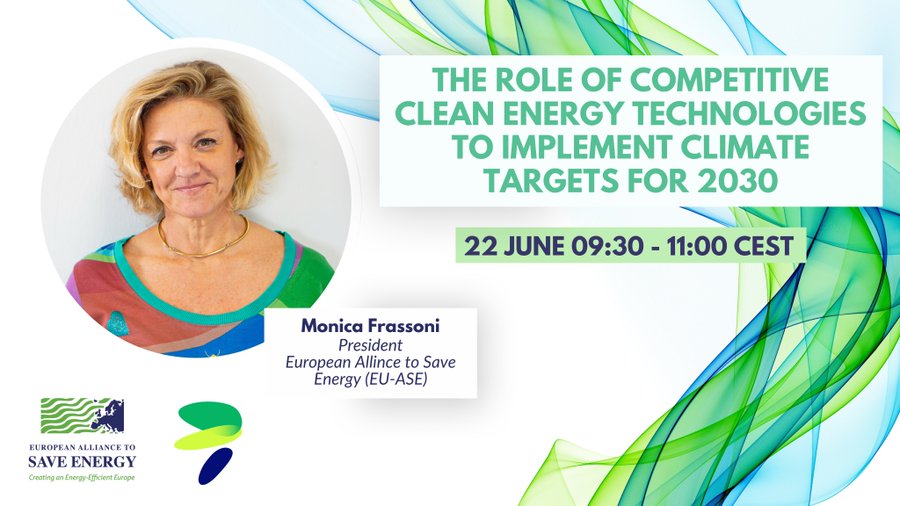EU-ASE at European Green Deal Seminar
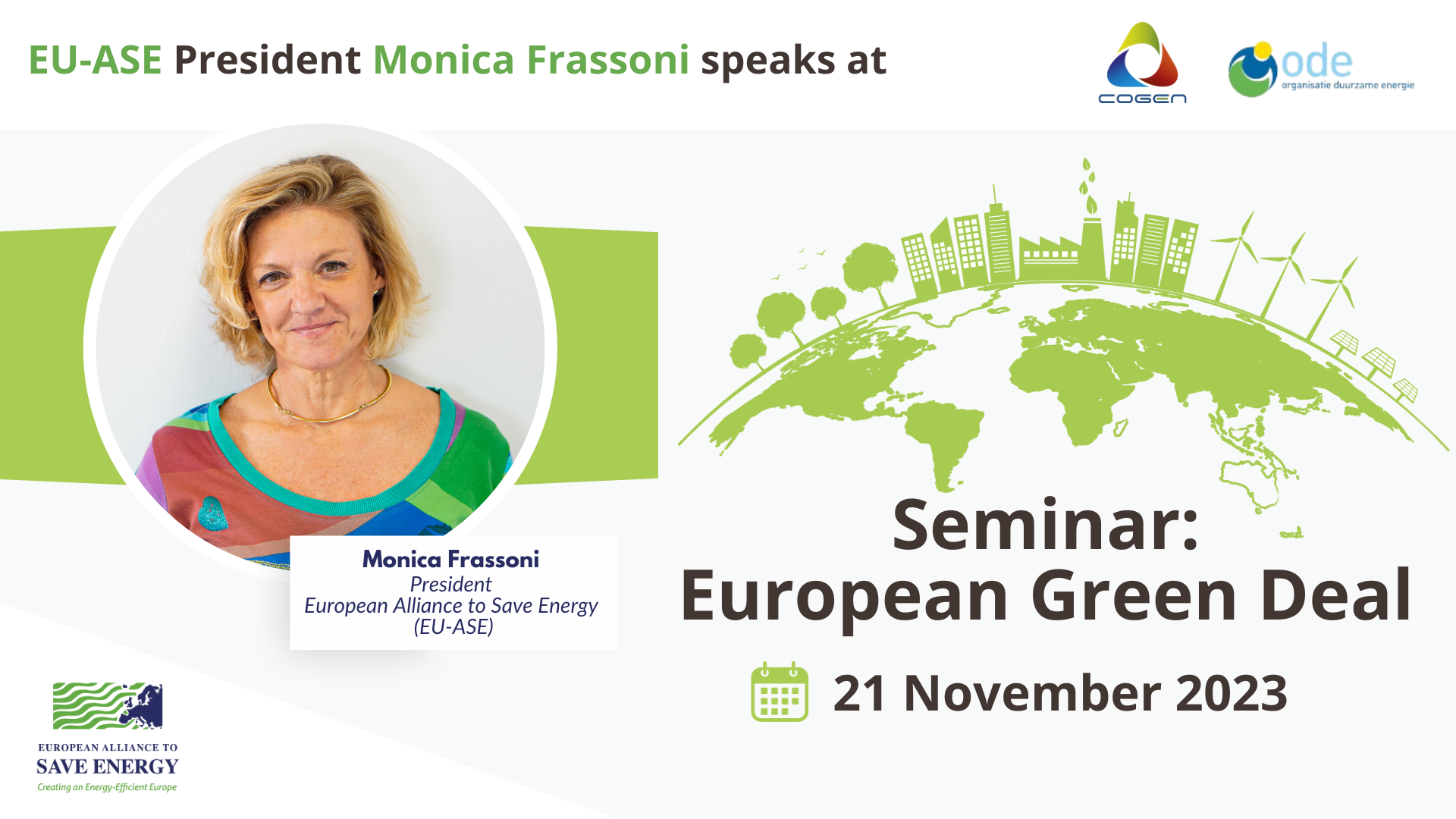
On Tuesday 21 November 2023, EU-ASE President Monica Frassoni will speak at a seminar hosted by ODE and COGEN Vlaanderen titled: “EU Green Deal”. Register here to attend!
The Green Deal is the European Commission’s first European climate plan to transform the European Union into a climate-neutral and sustainable continent by 2050. The Green Deal includes several measures aimed at reducing greenhouse gas emissions. For example, work is being done to promote renewable energy, improve energy efficiency in buildings and promote sustainable mobility.
What does that mean for us, this early warning about what is coming our way from the EU and outlines a framework for the next 5 to 10 years? Is the FIT for 55 package a quietly rising sea level coming our way or a tsunami?
ODE (The Sustainable Energy Organization) and COGEN Vlaanderen present to you the final revisions of this European legislation and its impact on the various technologies. EU-ASE President Monica Frassoni will give a presentation about the broad aspects of the new Energy Efficiency Directive (EED).
View the full event programme.

